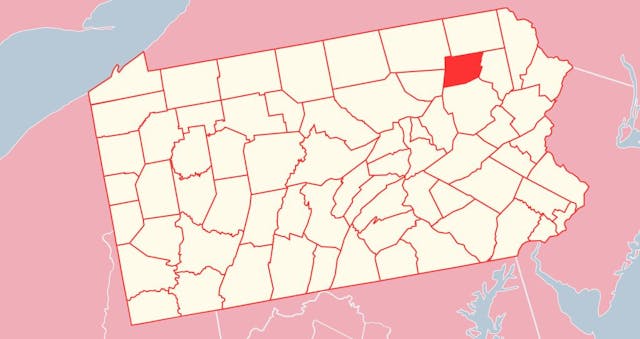Rehabs in Wyoming
Wyoming is the eighth least populous county in Pennsylvania, US. It was formed on April 4, 1842. Tunkhannock is its seat. As of the 2020 census, the population was 26,069.
According to statistics, residents have had many substance use disorders. It registered 49 deaths from drug poisons between 2018-2020. Besides, 21% of people abused alcohol in 2019. Sadly, alcohol-related driving deaths reached 32% during 2016-2020.
For that, there are a few rehabs in Wyoming County. They provide services trying to help society.
Drug and Alcohol Evaluation
The data of patients is essential for medical staff. For that purpose, they conduct a careful evaluation. Addiction counselors identify the current medical state of a person through an interview. Thus, the result depends on the answers of individuals.
Sometimes, they hide some vital information about their addiction. Yet, patients should know that this process is safe and confidential. All in all, doctors determine the treatment program depending on their answers.
Rehab Programs in Wyoming County
Rehabs in Wyoming County offer residential care. Those are designed for people who are 18 years old or older. They have special programs for teenagers as well.
Detox
Doctors advise patients to pass detox. In essence, it is based on the results of the evaluation. That is, this process is tailored to the needs of the individual. So, experts create a detox healing plan using medications and therapies. This method is a must so that a person can pass through it without pain.
Inpatient (IP)
IP, or residential care, is the most intensive level of drug and alcohol treatment. It is the only program where people with substance use disorder live 24 hours in facilities.
As a rule, the duration starts from 30 days. If dependence is severe, it lasts 60 or 90 days. However, some clinics may extend the period up to one year.
Members of this stage attend various services, such as:
Daily in-person and group counseling
Family therapy meetings
Discussion groups (on different aspects of dependence)
12-step meetings
Development of a relapse prevention plan
After completing treatment, individuals may continue the recovery journey at lower levels.
Partial Hospitalization Program (PHP)
Outpatient treatment starts with PHP. It heals mental illness, substance addiction, and abuse. Generally, people can return home after daily therapy sessions.
For effective recovery, the medical staff makes an individual treatment plan. Doctors prescribe medicines and make up the daily regime. Experts also consider the wishes and goals of each client.
Intensive Outpatient (IOP)
IOP aims to identify the root cause of addiction. Although people do not live in the rehab center, they take part in various meetings. Those include:
Group and individual therapy
Education
Support groups
Family therapy
These methods aim to help a person restore social relationships by adjusting to his/her family and community.
Outpatient (OP)
Outpatient treatment is helpful for those who need to continue their life. Though, they should be able to keep sobriety.
Experts help people to schedule the time and duration of sessions.
OP is the last stage of recovery, after which patients return to their lives. However, if it does not correspond to someone's needs, it is possible to increase the plan’s intensity.
Payment Options Without Insurance
Residential centers accept all major debit and credit cards. In this case, residents have to pay the first month's fee in advance.
Those who need financial assistance may contact the clinic and find out what financial aid they offer. Currently, some facilities have a contract with this province. In general, it provides additional funding. One of them is the SCA funding. It is provided by County Drug and Alcohol Program Offices.
Specialty Programs for Teens
To help teens, rehab centers create units that operate in schools or communities. They educate and teach minors using various techniques and plans. In truth, parents are also involved in these services. They learn how to support and care for their children at home and help them overcome drug and alcohol abuse.

